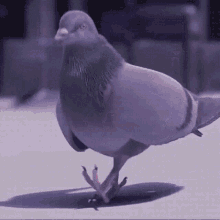

You’d be surpised at some of the foods which contain gluten. Take a vegetarian pizza, with some seitan on it? That’s pure gluten.
And the nature of celiacs or non-celiac gluten sensitivity is such — annoyingly, that the symptoms take a while to show up, so it’s unlike say a proper food allergy or lactose intolerance, it’s much harder to actually reason about what you’ve eaten, when the symptoms can show up as late as several days afterwards.
But yeah, ofc that’s not everyone and if it’s not you it’s not you. It just was for me, and now I’m kinda preachy about people trying exclusion diets just to be sure.












Ba Dum Tss